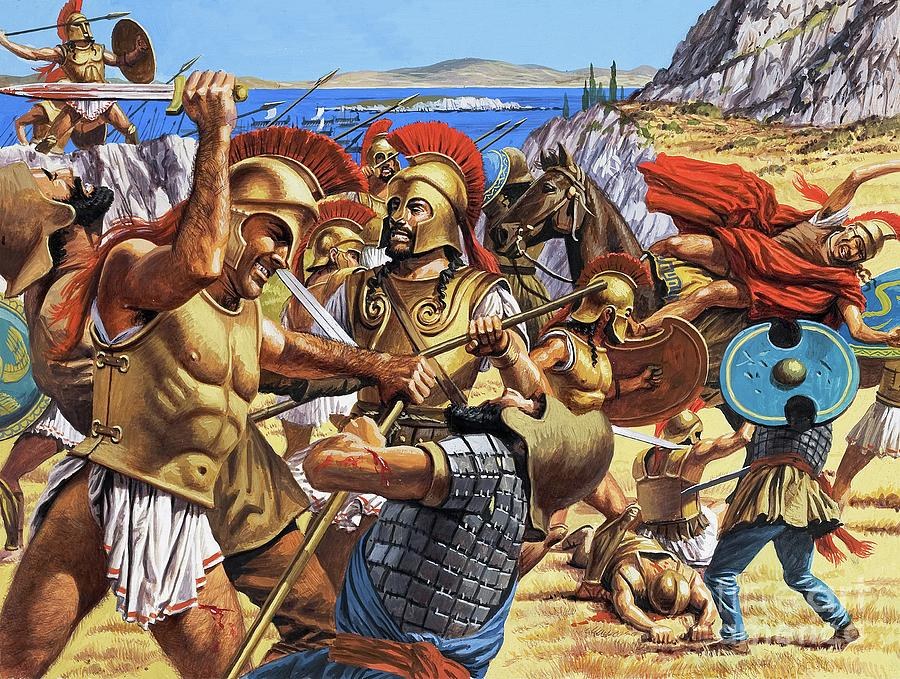Battle of Marathon
The Battle of Marathon was a decisive victory of the Athenian-Plataean army over the Persians in the first Persian invasion of Greece. The battle took place in 490 BC on the Marathon plain, a narrow stretch of land between the mountains and the sea, about 26 miles (42 km) northeast of Athens.

The Persian army was led by Datis and Artaphernes, and numbered around 25,000 men. The Athenian army, led by Miltiades, numbered around 10,000 men. The Plataeans, a small city-state allied with Athens, sent a force of 1,000 men to assist the Athenians.
Miltiades decided to attack the Persians on the plain of Marathon. He knew that the Persians had a superior cavalry force, so he needed to prevent them from using it to their advantage. He drew up his army in a long, thin line, with his strongest troops on the flanks.
The Persians attacked the center of the Athenian line, but the Athenians were able to hold their ground. The Athenians then counterattacked on the flanks, and the Persians were routed. The Persians fled to their ships and sailed away.
The Battle of Marathon was a major victory for the Greeks. It showed that the Persians could be defeated, and it boosted the morale of the Greeks. The battle is also remembered for the legendary feat of the Athenian messenger Pheidippides, who is said to have run all the way from Marathon to Athens to announce the victory. He died upon delivering the message.
The Battle of Marathon is considered to be one of the most important battles in history. It marked the beginning of the Greco-Persian Wars, which lasted for over 50 years. The victory of the Greeks at Marathon helped to ensure the survival of Greek culture and civilization.
